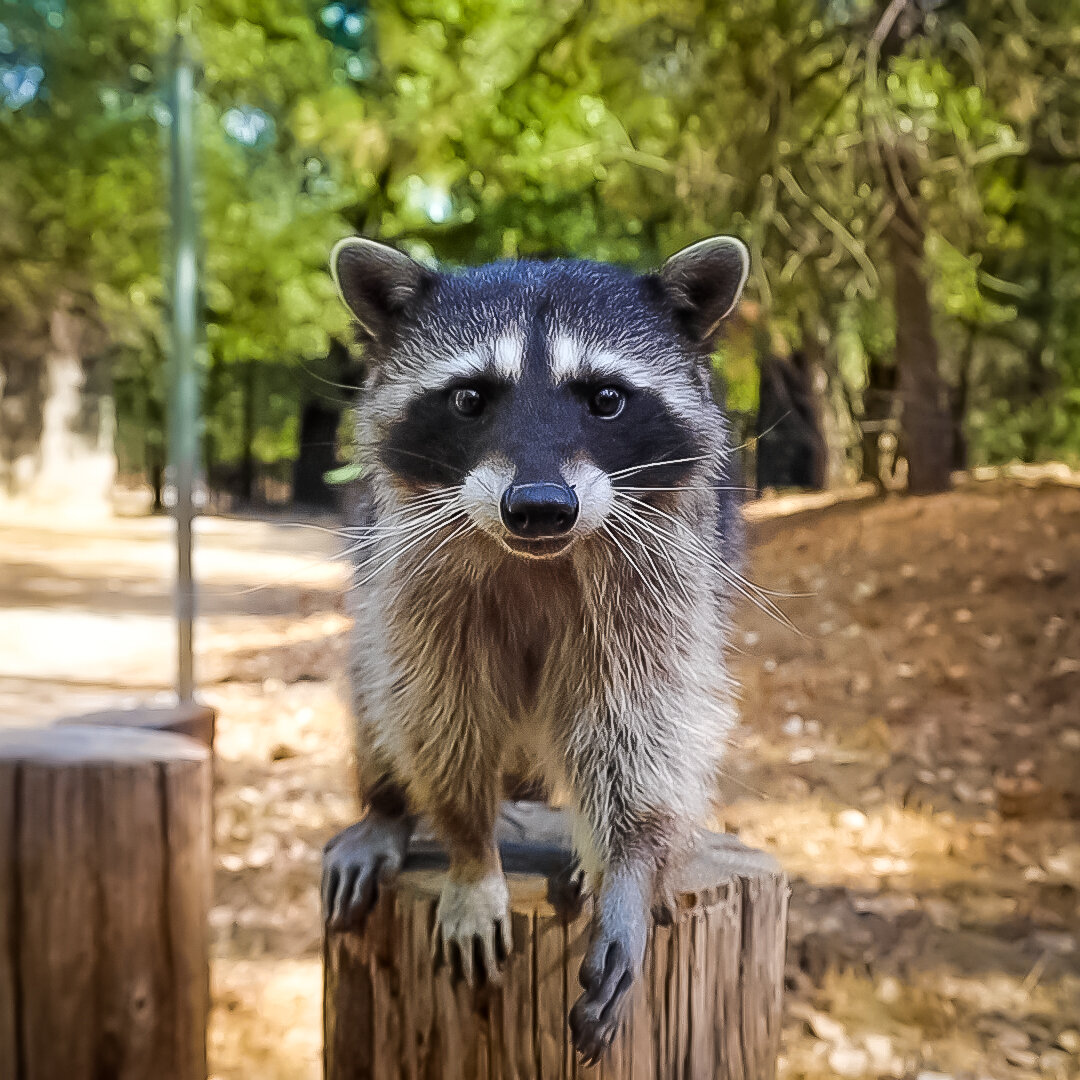Raccoons
Order: Canivora; Family: Procyonidae; Species: Procyon lotor
Range: Throughout North America in southern Canada, through the United States in most areas, down into central and northern South America.
Habitat: They are found in all different habitats as they can easily adapt, even being able to co-inhabit areas where humans live. They prefer to have a water source nearby, they enjoy swimming and find their favorite foods near water.
Diet: Being a scavenger, they will eat most anything, including from wild fruits and nuts to invertebrates, small animals, eggs, frogs, and fish. They are opportunistic, so if it is edible, chances are they will eat it, even carrion. Living near people, they often rummage through garbage cans in search of a meal.
Lifespan: Up to 16 years in the wild, averaging about 5 years; up to 20 years in captivity, record was 21 years.
Mischief
Mischief came to Turtle Bay because someone actually took him from the wild and tried to help him as a pet. While Mischief is a very friendly raccoon, he absolutely fits his name and is extremely mischievous, not making a very good pet. Wild animals never belong in your home. Because he was taken at such a young age, Mischief imprinted onto humans and is not able to survive in the wild.
Interested in the Adopt-An-Anamal program? Click link below.
Fun Facts
They usually travel in a straight path from the den site to food.
Fully nocturnal, it is rare to see a raccoon during the day.
Raccoons have an excellent sense of touch. They will use this to feel for food in dark places and underwater without looking. They also have acute hearing and good night-time vision.
Procyon lotor is the Latin name for the raccoon — lotor means “the washerman.” If you watch raccoons eating you'll notice that they often seem to wash their food before they dine. However, it's not cleanliness that drives this behavior. Raccoons have very sensitive nerves on the fingers of their front paws. Wetting the skin helps increase the responsiveness of those nerves. When they are foraging for food in water, they are feeling around with their paws to gather sensory information.
Raccoons are known for their bandit-like dark face masks. The distinctive dark markings help deflect the sun’s glare and also enhance night vision.


